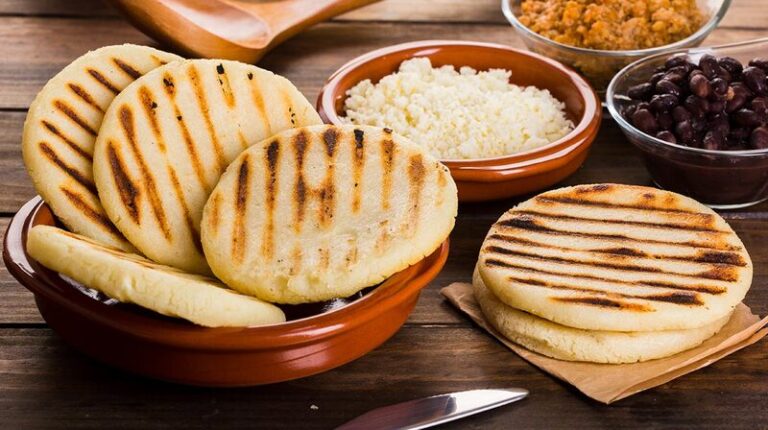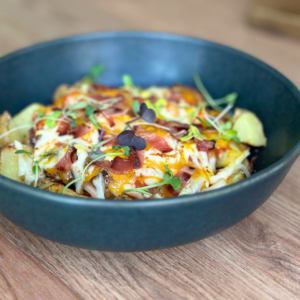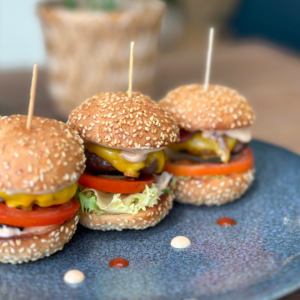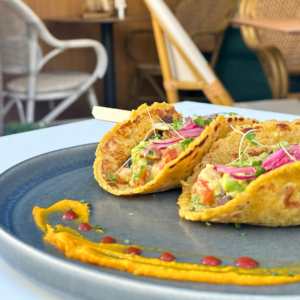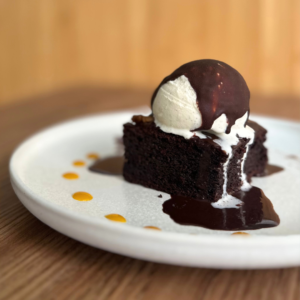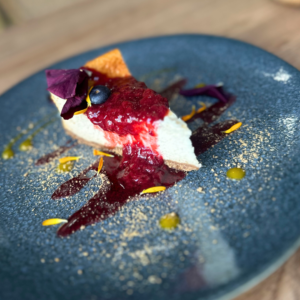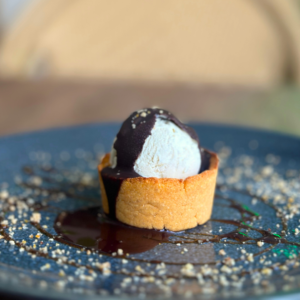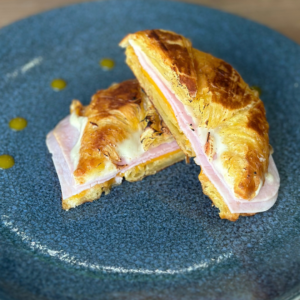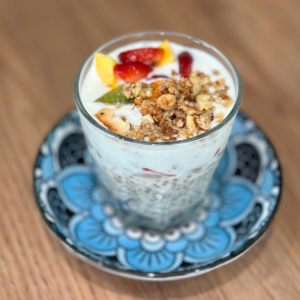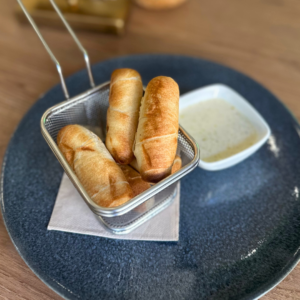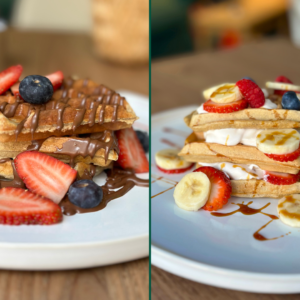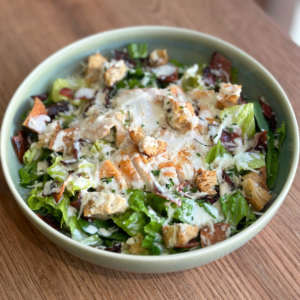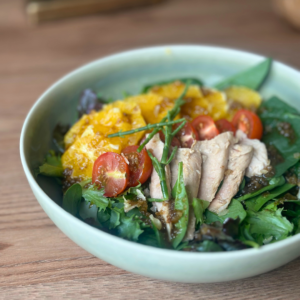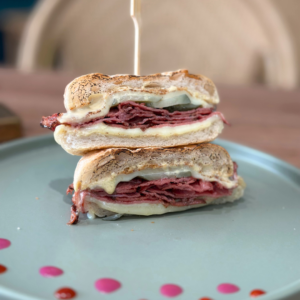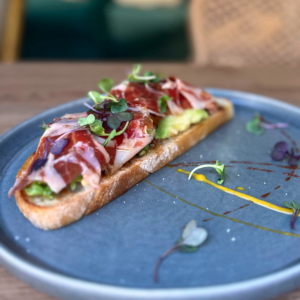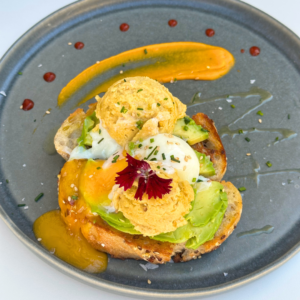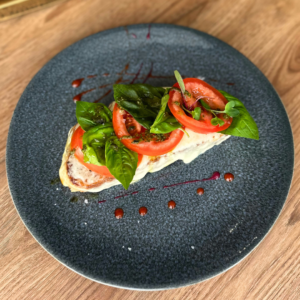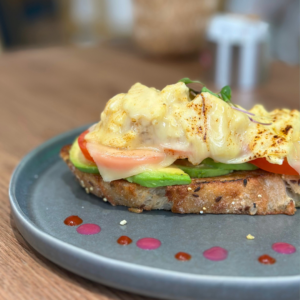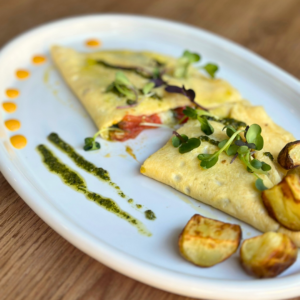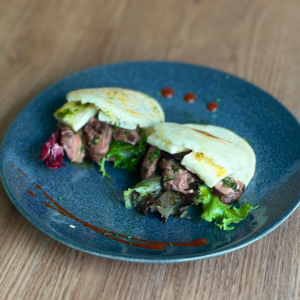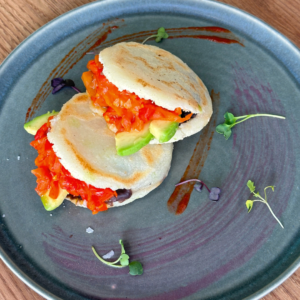Bread is one of the most widely consumed foods in the world and also one of the most debated. In recent years, gluten-free bread has gained prominence, not only among people with coeliac disease or intolerance, but also among those looking for healthier alternatives. However, a frequent question arises: is gluten-free bread fattening?
The answer to this question is not as simple as "yes" or "no". It depends on the ingredients, the type of preparation and, above all, how we integrate it into our daily diet. On Sabor Con Encanto - Brunch & Healthy Eatingin Malaga, we offer you gluten-free breads made with nutritious flours and prepared with care, so that you can enjoy a delicious and tasty healthy brunchtasty and balanced.
Is gluten-free bread more fattening?
Gluten-free bread, in general terms, provides a very similar number of calories to traditional bread. A slice is usually around 80-120 calories, but the key is not just the number, it is also the how it is elaborated.
Many industrial gluten-free breads use refined starches from rice, maize or potato to replace wheat flour. This may give them a light texture, but they often lack fibre and protein, making them less filling. In some cases, sugars, fats or additives are also added to improve taste and shelf life, increasing the overall caloric value.
On the other hand, artisanal gluten-free breads made with flours such as quinoa, buckwheat, chickpea or almond are more nutritionally dense. These ingredients provide fibre, minerals and protein, which helps to maintain a feeling of fullness for longer and better regulate energy levels.
In conclusion, gluten-free bread is neither more nor less fattening by definitionIt all depends on its composition and the quantity consumed.
Nutritional quality: beyond calories
When talking about gluten-free bread, many people fall into the trap of thinking that just because it is gluten-free, it is automatically healthier. Nothing could be further from the truth.
There are gluten-free breads made from refined flours that provide empty calories, little nutritional value and a high glycaemic index. This means that they quickly raise blood sugar levels, generating energy peaks followed by energy troughs that lead to hunger shortly afterwards.
However, when bread is made with whole grain flours from gluten-free cereals and pseudocereals, such as buckwheat, quinoa or millet, it is a different story. These breads provide fibre, antioxidants, B vitamins and minerals such as magnesium and iron. Moreover, if they are prepared with sourdough or long fermentations, they are more digestive and beneficial for the intestinal microbiota.
Therefore, the question should not only be "Is gluten-free bread fattening? "what kind of gluten-free bread am I choosing"..
What makes the difference? Ingredients and process
The big factor that determines whether gluten-free bread can be a part of a healthy diet without promoting weight gain is its ingredients and the process of elaboration.
- Quality ingredientsBreads with wholemeal flours from rice, maize, quinoa, chickpea or almond provide more nutrients than those based on refined starches alone.
- Fats and added sugarsMany industrial gluten-free breads incorporate oils, shortenings or syrups to improve their texture and taste. These extras increase the calories without providing any real nutritional value.
- FermentationBreads made with sourdough and long rising times tend to be more digestible, have a better texture and contribute to intestinal balance.
- Artisanal vs. industrialartisan breads prioritise natural ingredients and traditional techniques, while industrial breads aim to cut costs and extend shelf life.
In short, not all gluten-free breads are the same. Choosing one or the other can make a difference to how this food impacts on your health and weight.
Gluten-free diet and weight control
There is a belief that a gluten-free diet helps you lose weight, but the reality is that is not a slimming diet per se. Weight control depends on the balance between calories consumed and calories expended, not simply on eliminating gluten.
Some people experience weight loss when they stop eating gluten because they eliminate ultra-processed foods such as pizzas, pastries or snacks containing gluten. However, replacing them with gluten-free processed products, which are often higher in calories, can have the opposite effect and lead to weight gain.
For coeliacs, eliminating gluten is a medical necessity, not a weight control strategy. For non-coeliacs, opting for gluten-free bread only makes sense if you are looking for dietary variety or more digestive alternatives, but it does not guarantee weight loss.
The key is to eat good quality gluten-free bread in moderate portions as part of a varied and balanced diet.
Smart consumption tips for gluten-free bread
To integrate gluten-free bread into your diet without fear of gaining weight, the important thing is to know how to choose and eat it in moderation. Here are a few practical tips:
- Opt for wholemeal breads with flours such as quinoa, chickpea, buckwheat or corn, which are richer in fibre and nutrients.
- Check the labelsAvoid breads with long lists of ingredients, added sugars or unhealthy fats.
- Choose artisan breads versus industrial: they tend to be more natural and nutritious.
- Portion controlBread - although healthy, bread is calorie-dense and should ideally be eaten in moderation.
- Pair it with balanced mealsUse it as a base for breakfast or brunch with avocado, egg, hummus, fresh vegetables or salmon.
Why choose our gluten-free bread in Malaga?
At Sabor Con Encanto - Brunch & Healthy Eating We take care of every detail so that our gluten-free breads are a delicious, nutritious and safe option. We make our recipes with quality flours, avoiding unnecessary sugars and fats, to offer you a balanced product full of flavour.
In addition, we design our brunch with all lifestyles in mind: we have gluten-free, vegetarian and vegan options, always with fresh and natural products. We want you to enjoy gluten-free bread as part of a complete, healthy experience tailored to your needs.
📍 We look forward to seeing you in Plaza Enrique García-Herrera, 8, right in the centre of Malaga.to discover how gluten-free bread can be part of a brunch full of charm.
Frequently asked questions about gluten-free bread
Is gluten-free bread more fattening than normal bread?
No. Both provide similar calories. The difference is in the ingredients and the quality of the product.
Is gluten-free bread healthier?
It depends. If it is made with wholemeal flour and without additives, it can be more nutritious. But if it is industrial and highly processed, not necessarily.
Does eating gluten-free bread help to lose weight?
Not directly. Losing weight depends on the overall calorie balance. The important thing is to eat quality bread in the right quantity.
Is gluten-free bread more difficult to digest?
In most cases it is easier to digest, especially when made with sourdough or wholemeal flours.
Where to enjoy gluten-free bread in Malaga?
At Sabor Con Encanto - Brunch & Healthy Eating we offer tasty and balanced gluten-free breads, perfect to accompany your healthy brunch.
Gluten-free bread is no more or less fattening than traditional bread: it all depends on the ingredients, the way it is made and how you include it in your daily diet. Opting for homemade options, with nutritious flours and no added sugars, is the best way to enjoy this food without fear of its effect on your weight.
At Sabor Con Encanto - Brunch & Healthy EatingWe believe that food should be a balance between flavour, health and wellbeing. We invite you to visit us at Plaza Enrique García-Herrera, 8 and discover how our gluten-free breads can be part of a brunch that not only nourishes, but also makes you feel good.

